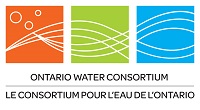
Dr. Vassili Karanassios, Professor of Chemistry and SOWC Sensor Node Researcher at the University of Waterloo
Vassili Karanassios is a Professor in the Department of Chemistry at the University of Waterloo and works closely with SOWC through the SOWC Sensor Node – a segment of the platform that enables the development of automated, wireless and distributed sensing of pathogens, chemicals and elemental contamination that may be present in water and provides infrastructure to design, prototype and validate sensors for specific needs of SOWC users.
The Karanassios Laboratory at the University of Waterloo develops and tests miniaturized, micro- and nano- instruments based on micro-plasmas designed around micro-fluidics channels. Portable, battery-operated micro-plasmas are coupled with optics and photonics technologies for chemical analysis on-site (i.e., in the field).
These devices are expected to allow users to ‘take part of the lab to the sample’ for on-site analysis. An additional component of the research conducted by Dr. Karanassios concerns the evaluation of nano-materials as emerging contaminants, particularly in groundwater, for which the Karanassios Laboratory hosts an ICP-MS instrument as part of SOWC.
Since joining the University of Waterloo, Professor Karanassios has supervised more than 100 visiting scientists, post-doctoral fellows and graduate and undergraduate research-students, co-authored a book, published more than 115 papers, written 6 technical reports and currently holds 3 patents. Dr. Karanassios is also a co-founder of a degree program in Nanotechnology Engineering at the University of Waterloo.
Dr. Karanassios obtained his BSc in Chemistry from Aristotle University in Thessaloniki, Greece, and his PhD in Chemistry from the University of Alberta. He was further engaged as a Post-Doctoral Fellow at McGill University and pursued sabbaticals in Chemistry at Sheffield University (UK) as well as in Engineering in Cambridge University (UK).
Questions & Answers with Dr. Karanassios
What do you aim to accomplish through your work?
One of my main goals is to develop miniaturized instruments that will enable chemical analysis in the field (e.g., on-site water analysis). My research further aims to help decipher the potential impact of nano-materials as emerging contaminants in groundwater samples.
How is your research translating into real-world water solutions?
Through the development of analytical instrumentation, techniques and methodology for analysis of water samples in the field (i.e., on-site), my research is able to address real-world water issues and solve them.
Can you provide a specific example?
Advanced mass spectrometry-based instrumentation can be used for analytical determinations involving nano-materials as emerging contaminants in water bodies (e.g., lakes, rivers, groundwater). With the diversity of water sources in Ontario and Canada, mobile, miniaturized instruments for chemical analysis on-site will be essential for effective monitoring for contaminants (and thus proper understanding and protection of those water bodies).
How has the SOWC helped support your water research?
SOWC has enabled the acquisition of important instrumentation to support the development of miniaturized instrumentation with practical and commercial relevance as well as instrumentation required for the evaluation of nano-materials as emerging contaminants.
What type of collaborative opportunities are you looking for through SOWC?
Working closely with SOWC, I am seeking collaborative opportunities within the water sector for instrumentation development and for method development and testing using real-world water samples.
What is unique about the capacity you are leading within SOWC?
The Karanassios Laboratory at the University of Waterloo has distinguished itself through advancements in its research with sensors and miniaturized instruments. This has translated to new miniaturization approaches as well as isotopic and isotope-ratio measurement capabilities offered by our lab-based instrumentation which will help attract potential users to the SOWC platform.

